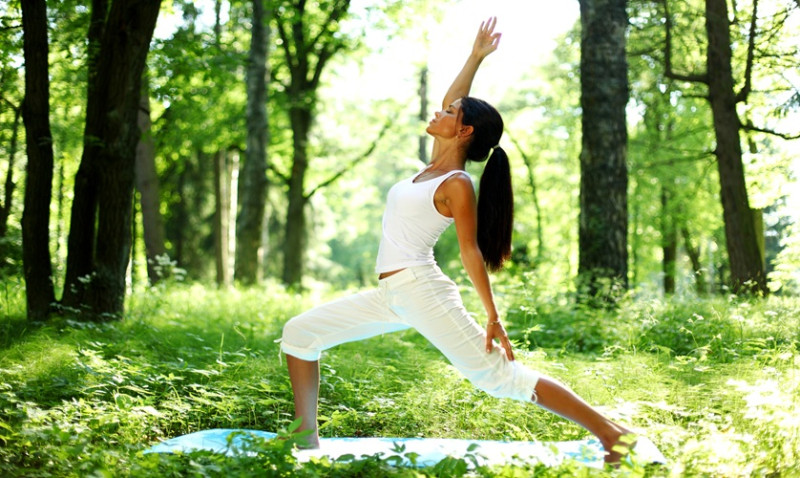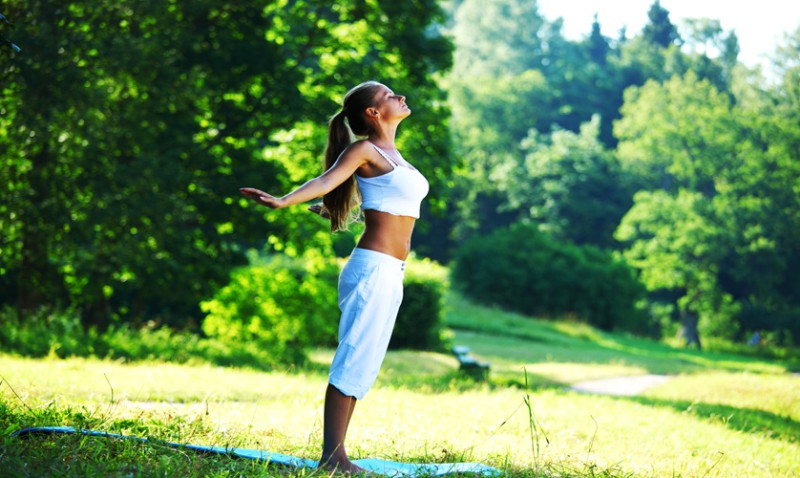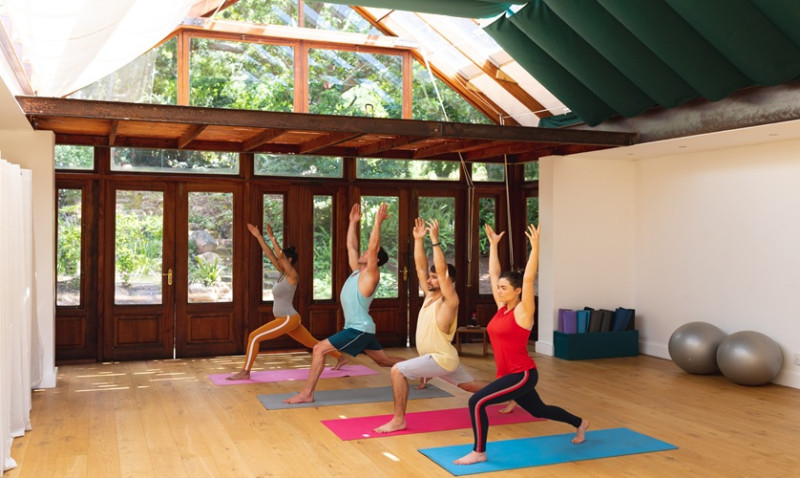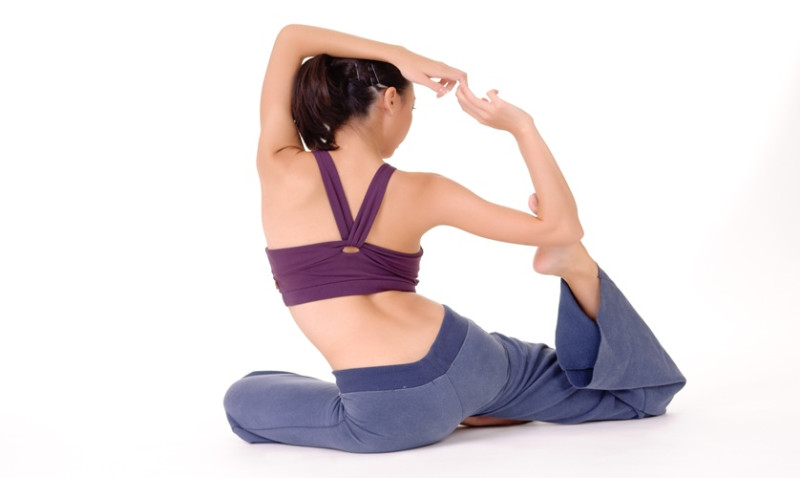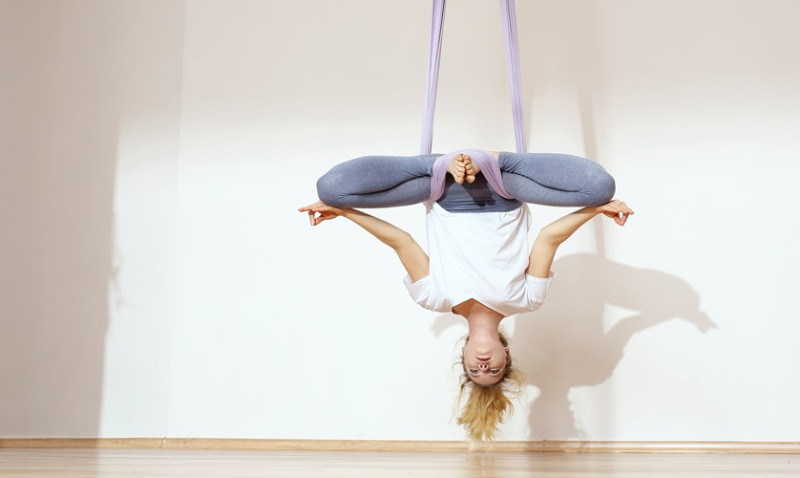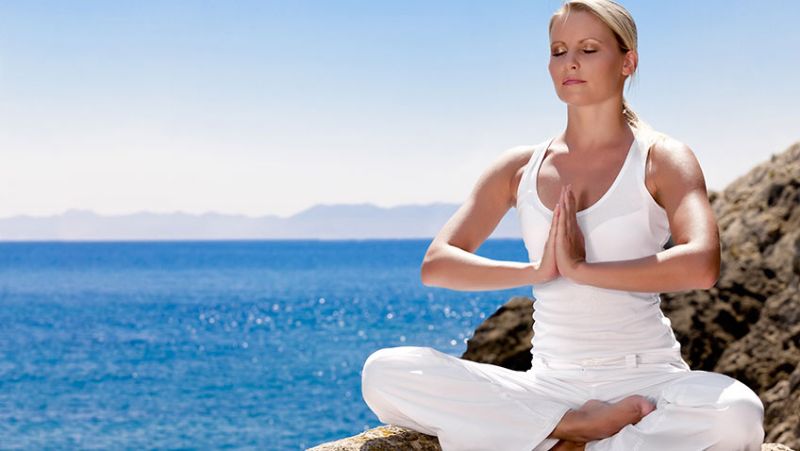
Yoga is an incredibly diverse and vast practice, with something to offer everyone regardless of experience level. However, because there are so many different types of yoga, it can be tough to know where to begin. Do you need to be flexible? How much should you expect to sweat? Is it okay to eat before class?
Our yoga for beginners guide will answer all of these questions and more, giving you the information and confidence you need to start practising yoga with ease. We’ll cover the basics of what yoga is and is not, dispel some common myths, and explain how to prepare for your first class.
What Is Yoga?
The practice of yoga can be broken down into many different parts, but at its core, it is a way to unify the mind, body and spirit. Hatha Yoga is one of the most popular forms of yoga in the West, but there are many paths of yoga that can lead to the same goal. The different paths of yoga emphasize different approaches and techniques, but all ultimately aim to achieve a state of enlightenment or oneness with the universe.
Yoga is an ancient practice that has been used for centuries to improve overall health and wellbeing. The benefits of yoga are numerous and can be experienced by everyone, regardless of age, fitness level or experience.
Hatha Yoga is a physical practice that aims to unite the mind, body and spirit. Through asanas (yoga postures), pranayama (yoga breathing), mudra (body gestures) and shatkarma (internal cleansing), hatha yoga seeks to purify the body and cultivate prana (life-force energy). Modern hatha yoga, however, often focuses more on the physical asanas than on the other practices.
The word Hatha comes from the Sanskrit ha, meaning "sun," and that, meaning "moon." This signifies the union of opposites, such as active and passive energies, masculine and feminine principles, etc. Hatha yoga is sometimes called yoga for health, as its practices are meant to unify the body, mind and spirit for optimum health and well-being.
If you're looking for a way to increase your flexibility, improve your breathing, and strengthen your muscles, yoga is a great option. Yoga is a form of exercise that can be tailored to any individual, regardless of experience or fitness level.
Is Yoga Right for You?
The practice of yoga can be beneficial for anyone, regardless of age, weight, or occupation. It is a great way to improve your overall health and well-being. If you are interested in trying yoga, there are classes available in most communities.
If you have a medical condition or are recovering from an injury, it is important to consult with a physician or other qualified healthcare professional before beginning yoga. There are many different types of yoga, and some may be more challenging or dangerous than others depending on your health and fitness level. Additionally, certain poses and breathing techniques may not be recommended if you have a medical condition. However, there are usually alternatives or modifications that can allow you to practice safely. If you are unsure about whether yoga is right for you, please consult with a healthcare professional before beginning any yoga practice.
If you feel any pain in your muscles or joints while doing yoga, you should stop and take it easy. Sharp or intense pain is your body's signal that something is wrong, so be sure to listen to it.
What Is the Best Yoga for Beginners?
Yoga is a great way to get your body moving and improve your overall health. There are many different types of yoga, so there is sure to be a style that suits you. If you are new to yoga, it is important to find a class that is appropriate for your fitness level and needs.
If you are familiar with the basic postures, you can explore a vinyasa or flow class. We recommend you avoid Ashtanga, Bikram, or hot yoga until you have built up some physical strength and endurance. Yoga is a great way to improve your overall health, but it's important to approach it slowly and carefully to avoid injury. The best way to know if yoga is for you is to give it a try!
How to Practice Yoga
The traditional practice of yoga is usually done barefoot on a sticky yoga mat, with optional props. The yoga movements and poses require clothes that can stretch and move freely with your body. Clothing specifically designed for yoga practice can be purchased, but you can probably put together a comfortable outfit from your existing wardrobe to get started.
Some popular yoga props include blocks, straps, and blankets. Blocks can be used to help you stay in poses longer or to increase the difficulty of a pose. Straps can be used to help you deepen a stretch or to hold on to your feet in certain poses. Blankets can be used for a variety of purposes, such as providing support or padding in certain poses. If you're new to yoga, there are a few things you should know before getting started.
Your First Yoga Practice
Begin with a short and simple yoga session and gradually increase the intensity. After you've mastered a few basic beginner yoga postures, you may begin to add more challenging ones. Make sure you study and practice the fundamental components of yoga: breathing, meditation, focus, postures, and relaxation. With regular practice, you will see your strength and flexibility improve. You may also find that your overall sense of well-being improves. Namaste!
How Often Should I Do Yoga?
You can expect to improve your flexibility, range of motion, strength, balance, inner calm, and overall well-being if you practice yoga three or more times each week. Longer and more frequent sessions, 20-45 minutes long, with a total of 3-4 hours spread out over several days, are preferable.
If you want to see the most benefits from yoga, you should be practising for at least this amount of time each week. Though you will still see some improvements if you practise for less than this, you will see them over a longer period of time. Dedicating more time to yoga will allow you to experience more of its benefits.
The Benefits of Practicing Yoga
The benefits of yoga are many! Practising yoga helps build healthy virtues and good values, such as discipline, honesty, devotion, self-inquiry, mindfulness, and non-attachment. Yoga empowers you to make conscious choices toward living a more healthy and fulfilling life.
Through regular yoga practice, you will develop increased strength and flexibility, improved posture and alignment, enhanced focus and concentration, reduced stress levels, and improved sleep quality. You will also boost your immune system function, improve circulation, detoxify the body, and increase energy levels.
